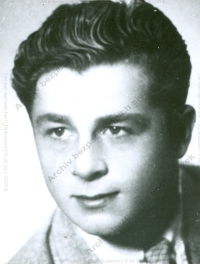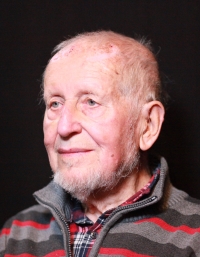He obeyed the Pope and stood up to Bolshevism
Download image
Josef Hořák was born on 14 March 1933 in Chrlice near Brno to parents Josef Hořák and Antonie, née Cupáková. In 1951 he trained as a carver, but began his career as a truck driver. In 1951, he joined the anti-communist resistance when he helped a friend who was working with French intelligence to photograph military targets, such as barracks, in Olomouc. In February 1953, he was arrested and sentenced to four years without parole. He served his sentence in the uranium mines in Jáchymov and Příbram. After his release in 1957, no one wanted to employ him as a former prisoner. He therefore returned to work in the uranium mines, married after the military service and worked as a driver, dispatcher and, after graduating from the building industry school, as a construction manager. In 1968 he was secretly ordained a Greek Catholic priest and worked in the hidden church of Koinótés until 1989. He was fully rehabilitated in 1990.

